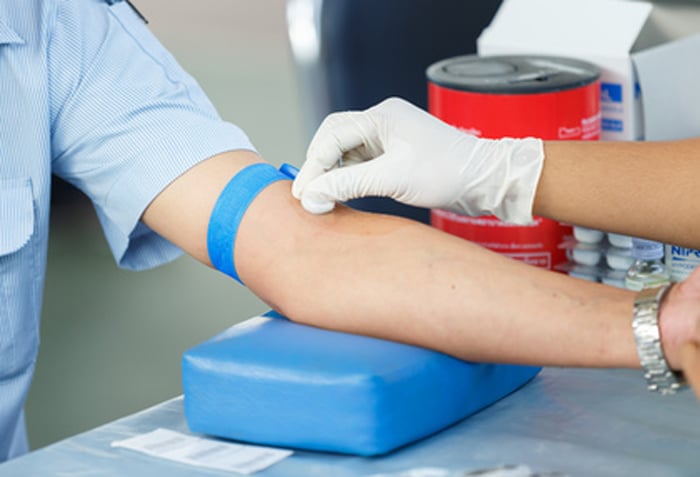
Title: The Ultimate Guide to Phlebotomy Classes: Everything You Need to Know to Launch Your Medical Career
Introduction:
Embarking on a career in the medical field can be both rewarding and fulfilling. If you have a passion for helping others and want to make a difference in people’s lives, pursuing a career as a phlebotomist may be the perfect fit for you. But before you can start drawing blood and assisting with medical procedures, you’ll need to complete phlebotomy classes to gain the necessary skills and knowledge.
In this comprehensive guide, we will cover everything you need to know about phlebotomy classes, from the curriculum to the benefits and practical tips for launching your medical career successfully.
What is Phlebotomy?
Phlebotomy is the practice of drawing blood from patients for various purposes, such as medical testing, blood donations, and transfusions. Phlebotomists are trained healthcare professionals responsible for collecting blood samples and ensuring the samples are properly labeled and handled to maintain patient safety.
What Do Phlebotomy Classes Cover?
Phlebotomy classes typically cover a range of topics to prepare students for a career as a phlebotomist. Some of the key areas covered in phlebotomy classes include:
1. Anatomy and Physiology: Understanding the human body’s circulatory system and venipuncture techniques.
2. Medical Terminology: Learning the language of healthcare to communicate effectively with other medical professionals.
3. Infection Control: Practicing proper hygiene and safety procedures to prevent the spread of infectious diseases.
4. Blood Collection Techniques: Mastering venipuncture and capillary puncture techniques for drawing blood samples.
5. Equipment and Supplies: Familiarizing yourself with different types of blood-drawing equipment and supplies used in phlebotomy procedures.
6. Legal and Ethical Considerations: Understanding the laws and regulations governing blood collection and patient privacy.
Benefits of Completing Phlebotomy Classes:
There are several benefits to completing phlebotomy classes and becoming a certified phlebotomist. Some of the key benefits include:
1. High Demand: Phlebotomy is a rapidly growing field, with a high demand for trained phlebotomists in hospitals, clinics, and blood donation centers.
2. Flexibility: Phlebotomists often have flexible work schedules and can work part-time or full-time, depending on their preferences.
3. Job Security: As healthcare facilities continue to expand, the need for skilled phlebotomists will only increase, providing job security and growth opportunities.
4. Competitive Salary: Phlebotomists receive competitive salaries, with the potential for salary increases and advancement with experience.
5. Career Advancement: With additional training and certifications, phlebotomists can advance their careers and pursue specialized roles in the medical field.
Practical Tips for Success in Phlebotomy Classes:
To succeed in phlebotomy classes and launch your medical career, consider the following practical tips:
1. Stay Organized: Keep track of assignments, study materials, and class schedules to stay on top of your coursework.
2. Practice Skills: Take advantage of hands-on training opportunities to practice blood-drawing techniques and build confidence.
3. Communicate Effectively: Develop strong communication skills to work effectively with patients and healthcare professionals.
4. Seek Support: Don’t hesitate to ask questions, seek help from instructors or classmates, and take advantage of support services offered by your school.
5. Stay Current: Stay informed about the latest developments in phlebotomy practices and technologies to enhance your skills and knowledge.
Case Study: The Journey of a Phlebotomy Student
Meet Sarah, a phlebotomy student who recently completed her phlebotomy classes and launched her medical career. Sarah’s passion for helping others led her to pursue a career in healthcare, and she decided to become a phlebotomist to start her journey in the medical field.
During her phlebotomy classes, Sarah excelled in her studies and received hands-on training to master blood-drawing techniques. She was able to build strong relationships with her instructors and classmates, who supported her throughout her training.
After completing her phlebotomy classes and obtaining her certification, Sarah landed a job at a local hospital, where she now works as a phlebotomist. She enjoys interacting with patients, drawing blood samples, and assisting with medical procedures, knowing that she is making a difference in people’s lives every day.
First-Hand Experience: Tips from a Phlebotomist
As a seasoned phlebotomist with years of experience in the field, I can attest to the value of completing phlebotomy classes and obtaining certification. The skills and knowledge I gained during my training have been instrumental in my success as a phlebotomist and have opened doors to new opportunities in the medical field.
If you’re considering a career as a phlebotomist, I encourage you to enroll in phlebotomy classes, stay committed to your studies, and leverage hands-on training experiences to build your skills and confidence. Remember that every blood sample you draw has the potential to save a life and make a difference in someone’s health and well-being.
Conclusion:
Launching your medical career as a phlebotomist begins with completing phlebotomy classes and obtaining the necessary certification. By mastering blood-drawing techniques, understanding medical terminology, and practicing infection control procedures, you can become a skilled phlebotomist ready to make a difference in the lives of patients.
Whether you’re just starting your journey in the medical field or looking to advance your career as a healthcare professional, phlebotomy classes offer a valuable opportunity to gain the skills and knowledge you need to succeed. Take the first step towards a rewarding career in healthcare by enrolling in phlebotomy classes and embarking on a fulfilling career as a phlebotomist.
